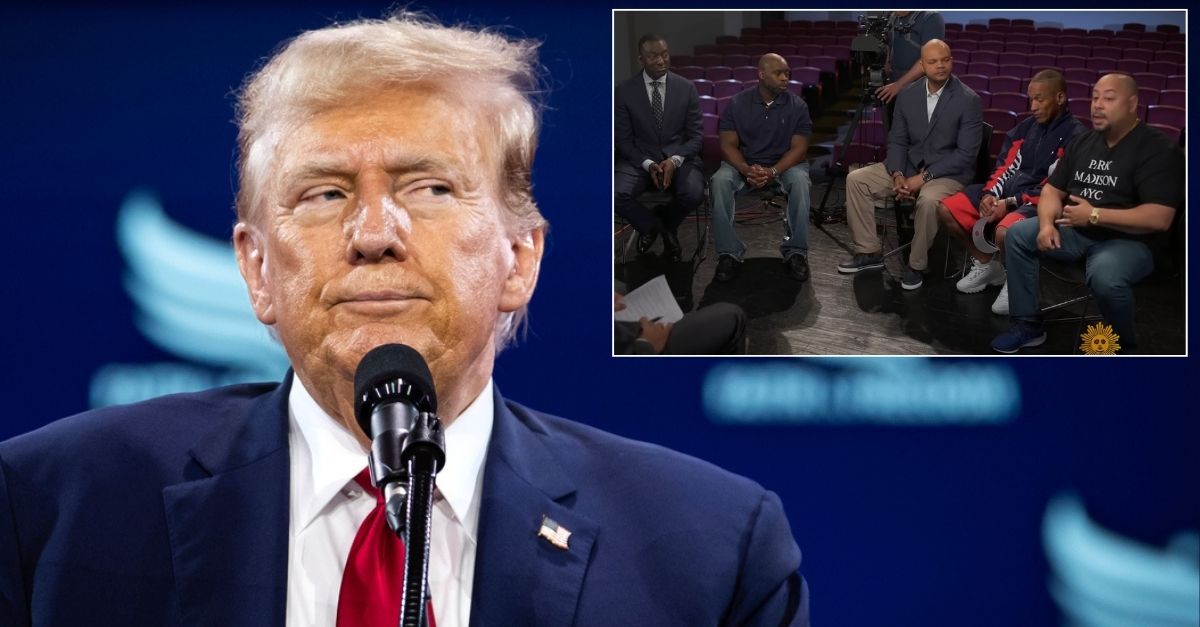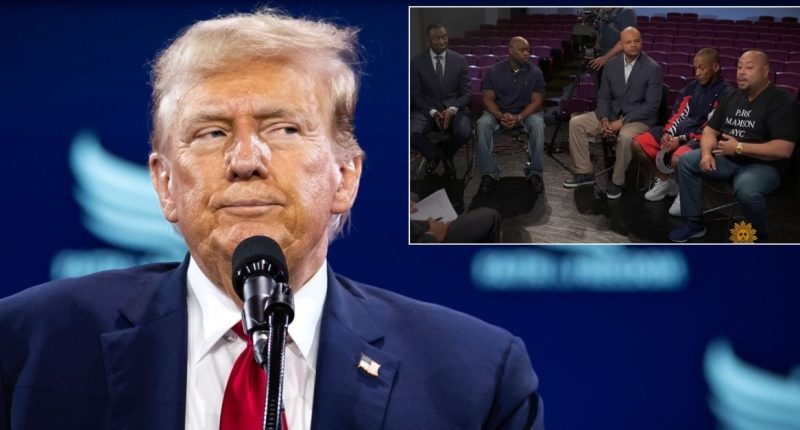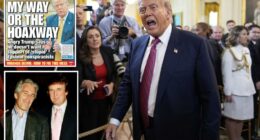
Inset, left to right: Yusef Salaam, Antron McCray, Korey Wise, Kevin Richardson, Raymond Santana appear on CBS Sunday Morning, May 12, 2019 (CBS Sunday Morning). Background: Donald Trump speaks at the annual Road to Majority conference in Washington, DC, June 22, 2024. (Allison Bailey/NurPhoto via AP)
A federal judge in Pennsylvania refused to grant President Donald Trump’s request to toss out a defamation lawsuit filed against him by members of the Central Park Five, including false claims that the exonerated men formally pleaded guilty to attacking a raping the victim and were responsible for killing someone.
U.S. District Judge Wendy Beetlestone of the Eastern District of Pennsylvania denied Trump’s motion to dismiss the suit, reasoning that the plaintiffs had presented sufficient evidence to pursue their claims while rejecting the president’s assertions that the statements he made were non-defamatory matters of opinion which were nonetheless substantially true in nature
The wrongly-accused quintet sued Trump for allegedly false statements he made during last year’s presidential debate with Kamala Harris in which he said the plaintiffs “pled guilty” to the horrific attack and “ultimately killed a person.” Antron McCray, Korey Wise, Kevin Richardson, and Raymond Santana gave police coerced confessions, but never pleaded guilty. Yusef Salaam did not confess or plead guilty, nor did the victim of the attack die.
According to Beetlestone, the plaintiffs’ interpretation of Trump’s comments asserted three key propositions: That the Central Park Five pleaded guilty, that they “badly hurt” someone, and that they “killed someone.”
“Construing Defendant’s comments as a whole, and in the light most favorable to Plaintiffs, as a court must at this stage, such a reading is reasonable,” Beetlestone, a Barack Obama appointee, wrote in the 20-page order. “And, Defendant’s assertions — that Plaintiffs pleaded guilty and that Plaintiffs killed someone — can be ‘objectively determined’ to be false, so Defendant’s statement must be construed as one of fact, not opinion. In fact, none of them pleaded guilty and none of them were charged with killing anyone.”
The judge also refused to heed Trump’s claim that his comments were the kind of “rhetorical hyperbole” that people expect to hear at political debates, supporting her analysis with citations to two cases closely associated to the president.






